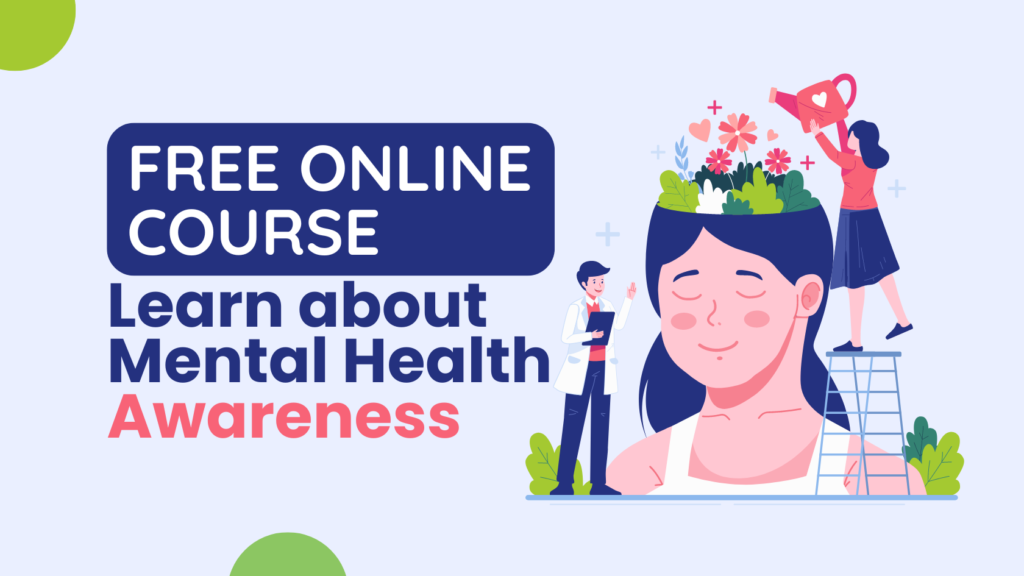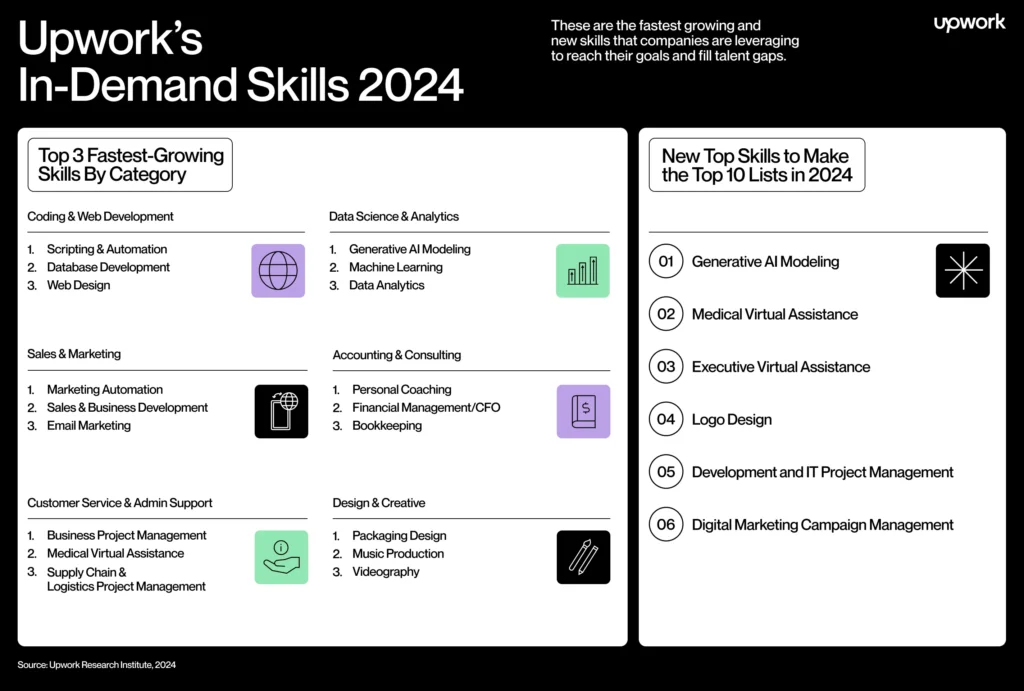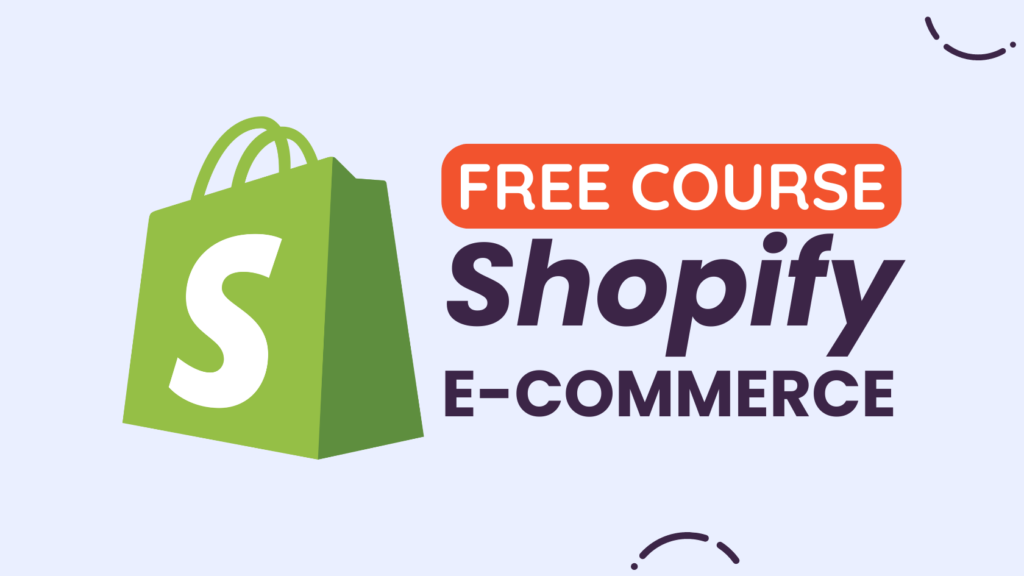The Top 7 Best Free Online Courses and Classes of 2024
“The beautiful thing about learning is that no one can take it away from you.” – B.B. King
Hello everyone! 👋. Are you eager to learn something new but worrying about tuition fees brings chills down your spine? Don’t worry, you aren’t alone! We’ve all had those moments when we wish we could simply soak in knowledge without breaking the bank. So, guess what? You can!
We’re falling completely into the realm of free online learning, and I’m about to share my top seven favorite platforms for self-improvement that won’t break the bank.
Whether you want to master a new profession, become a coding expert, or simply indulge your inner intellect, these platforms provide something for everyone. So grab your favorite drink, settle comfortably, and let’s explore the fantastic world of free learning together!
We will discuss platform that offers free online education in most other areas of study such as:
- Coding
- Design
- Soft skills
- Sales
- Business
- Social media
- Web tools
- Film production/editing
- Computer Science
- Information technology
- Engineering
- Math
- Logic
- Cultural/anthropology
- Journalism
- Research
- Theory
- Data Science
- Statistics
- Analysis
- Some law
- Speech/public speaking
- Arts and humanities
- Social sciences
- Personal development
- Physical science
- Language learning
- And more
10 Personal Finance Online Free Course
Quick Navigation
Toggle1. Udemy
Overview
Udemy is a vast marketplace for learning and instruction. With over 155,000 courses, Udemy offers a variety of subjects ranging from programming and marketing to personal development and lifestyle. It provides a platform for experts and instructors from all walks of life to create and share their courses with a global audience. The platform’s user-friendly interface makes it easy for learners to search for courses based on their interests and skill levels. Udemy’s model emphasizes lifetime access, meaning once you purchase a course, you can revisit it anytime.
How it Works
Users can browse through the catalog and enroll in courses. While many courses are paid, Udemy also offers numerous free courses. Once enrolled, students get lifetime access to the course material, allowing them to learn at their own pace.
Pros
- Diverse Course Selection: Offers a wide range of subjects and topics.
- Lifetime Access: Enroll once and get lifetime access to the course content.
- User-Friendly Interface: Easy to navigate and search for courses.
- Frequent Discounts: Regular sales and discounts on courses.
- Community and Reviews: Access to community feedback and reviews for each course.
- Expert Instructors: Courses are often taught by industry experts and professionals.
- Self-Paced Learning: Flexibility to learn at your own pace.
- Multiple Languages: Courses available in various languages.
Cons
- Quality Variance: Since anyone can create and sell a course on Udemy, the quality of courses can vary significantly.
- Limited Interaction: Most courses are self-paced with limited interaction with instructors.
- No Accredited Certificates: Certificates from Udemy are not accredited.
- Overwhelming Choices: The sheer number of courses can be overwhelming.
- Marketing Emails: Users may receive frequent promotional emails.
What Students Are Saying
Students appreciate the wide range of topics and the accessibility of courses. However, some mention the need to carefully review course ratings and feedback due to the variable quality.
2. Edx
Overview
Founded by Harvard and MIT, Edx offers high-quality courses from top universities and institutions worldwide. It provides a platform for learners to access courses from prestigious institutions, including Harvard, MIT, Berkeley, and many others. Edx courses cover a broad spectrum of disciplines, including computer science, engineering, humanities, business, and more. The platform is known for its rigorous academic standards and comprehensive learning experience.
How it Works
Users can enroll in courses for free under the “audit” option, which provides access to course materials. For those who want a certificate, Edx offers a paid “verified” option.
Pros
- High Academic Standards: Courses from top universities and institutions.
- Wide Range of Subjects: Extensive course catalog across various disciplines.
- Flexible Learning: Audit courses for free or pay for certificates.
- Accredited Certificates: Verified certificates from reputable institutions.
- Interactive Learning: Includes quizzes, assignments, and discussion forums.
- Professional Development: Courses designed for career advancement.
- Self-Paced and Scheduled Courses: Options for both self-paced and instructor-led courses.
- Global Community: Connect with learners from around the world.
Cons
- Limited Access: Free courses under the audit option may have limited access to graded assignments and certificates.
- High Cost for Certificates: Verified certificates can be expensive.
- Complex Interface: Some users find the interface less intuitive.
- Limited Instructor Interaction: Less direct interaction with instructors compared to traditional courses.
- Time-Consuming: Some courses require a significant time investment.
What Students Are Saying
Students praise the platform for its high academic standards and the credibility of courses. The main drawback mentioned is the cost of certification.
3. Coursera
Overview
Coursera partners with universities and companies to provide courses, specializations, and degrees in a wide array of subjects. The platform includes offerings from top universities like Stanford, Yale, and Princeton, as well as industry leaders like Google and IBM. Coursera’s courses are designed to be flexible and accessible, catering to both beginners and advanced learners. The platform also offers professional certificates and full degree programs, making it a comprehensive learning destination.
How it Works
Courses can be audited for free, providing access to video lectures and readings. To access graded assignments and earn a certificate, students need to pay a fee.
Pros
- Prestigious Partners: Collaborates with top universities and companies.
- Wide Range of Courses: Covers a broad array of subjects and skills.
- Flexible Learning Options: Audit for free or pay for certificates and degrees.
- Accredited Certificates and Degrees: Offers recognized certificates and degree programs.
- Interactive and Engaging: Includes quizzes, peer reviews, and projects.
- Mobile Access: Learn on the go with the Coursera app.
- Professional Development: Focused on career advancement and skill-building.
- Financial Aid Available: Offers financial aid for learners who qualify.
Cons
- Paywall for Certificates: Most valuable features, such as graded assignments and certificates, require payment.
- Course Availability: Some courses are only available at specific times.
- Complex Pricing Structure: The pricing for specializations and degrees can be confusing.
- Limited Free Features: The free version provides limited access compared to paid options.
- High Cost for Degrees: Full-degree programs can be expensive.
What Students Are Saying
Coursera is highly regarded for its collaboration with prestigious institutions. Students value the structured learning paths and the ability to earn certificates, though some find the costs prohibitive.
4. FutureLearn
Overview
FutureLearn offers courses from leading universities and organizations worldwide. The platform emphasizes social learning, allowing students to discuss course material with peers. FutureLearn provides a variety of subjects, including healthcare, business, and arts. It offers both short courses and more comprehensive programs like micro-credentials and online degrees, designed to cater to different learning needs and career goals.
How it Works
Courses can be taken for free with limited-time access. For unlimited access and certificates, students need to upgrade to a paid option.
Pros
- High-Quality Courses: Collaborates with reputable universities and organizations.
- Interactive Learning: Emphasizes peer discussion and social learning.
- Flexible Learning Paths: Offers short courses, microcredentials, and degrees.
- User-Friendly Interface: Easy to navigate and engaging design.
- Accessible Content: Provides free access to course materials for a limited time.
- Professional Development: Focus on career advancement and skill-building.
- Mobile Access: Courses can be accessed via the FutureLearn app.
- Certificates Available: Option to earn certificates for a fee.
Cons
- Time Limitation: Free access is often limited to the course duration (usually 4-6 weeks).
- Limited Interaction with Instructors: Most interaction occurs within student discussions.
- Cost for Unlimited Access: Continuous access and certificates require payment.
- Limited Course Variety: Smaller course catalog compared to other platforms.
- Course Availability: Some courses are only available at specific times.
What Students Are Saying
Students enjoy the interactive and engaging learning experience. However, the time-limited access to free courses can be a drawback for some.
5. Codecademy
Overview
Codecademy focuses on teaching coding and programming skills through interactive, hands-on exercises. It covers a variety of programming languages and technologies, including Python, JavaScript, HTML, CSS, and more. Codecademy is designed for both beginners and experienced programmers, offering a structured learning path with interactive coding exercises that provide immediate feedback.
How it Works
Users can start with free courses that include interactive lessons and projects. A paid “Pro” membership offers additional content, quizzes, and personalized learning plans.
Pros
- Hands-On Learning: Focus on interactive and practical coding exercises.
- Wide Range of Languages: Covers multiple programming languages and technologies.
- Structured Learning Paths: Clear progression from beginner to advanced levels.
- Immediate Feedback: Real-time feedback on coding exercises.
- User-Friendly Interface: Intuitive and easy to navigate.
- Career-Focused: Courses designed with job-readiness in mind.
- Community Support: Access to forums and community discussions.
- Additional Resources: Pro members get access to quizzes, projects, and personalized plans.
Cons
- Limited Content in Free Version: Many advanced courses and features are locked behind the Pro membership.
- Less Theory: Focuses more on practical coding skills, with less emphasis on theoretical understanding.
- High Cost for Pro Membership: Pro membership can be expensive for some users.
- Limited Course Variety: Primarily focuses on programming and tech-related skills.
- No Accredited Certificates: Certificates are not accredited.
What Students Are Saying
Students appreciate the practical, hands-on approach to learning coding. However, some wish for more comprehensive free content and theoretical explanations.
6. Udacity
Overview
Udacity offers “Nanodegree” programs designed in collaboration with industry leaders. These programs are focused on technology, programming, and data science. Udacity’s courses are highly practical, emphasizing real-world projects and skills that are directly applicable to the job market. The platform provides mentoring and career services to support learners in achieving their career goals.
How it Works
Users can access course materials for free, but Nanodegree programs, which include projects, mentoring, and career services, require a subscription.
Pros
- Industry Partnerships: Collaborates with tech giants like Google, IBM, and Amazon.
- Project-Based Learning: Emphasis on real-world projects and practical skills.
- Career Services: Offers resume reviews, job placement assistance, and mentoring.
- High-Quality Content: Courses created by industry experts and professionals.
- Flexible Learning: Self-paced courses with flexible deadlines.
- Nanodegree Programs: Comprehensive programs designed for job readiness.
- Community Support: Access to forums and peer support.
- Certification: Certificates that are recognized in the tech industry.
Cons
- High Cost for Nanodegrees: Full access to Nanodegree programs is expensive.
- Narrow Focus: Primarily focuses on tech-related fields.
- Time-Consuming: Nanodegree programs require significant time investment.
- Limited Free Content: Access to premium features requires a subscription.
- Challenging Curriculum: Some courses can be difficult for beginners.
What Students Are Saying
Students value the real-world projects and industry relevance of the courses. The main concern is the high cost associated with Nanodegree programs.
7. Memrise
Overview
Memrise specializes in language learning using spaced repetition and gamification. It offers courses in numerous languages with a focus on real-world vocabulary and phrases. Memrise combines video clips of native speakers, interactive exercises, and games to create an engaging learning experience. The platform is designed to make language learning fun and effective through its unique approach.
How it Works
Users can access basic courses for free. A Pro subscription provides additional features like offline mode, listening skills, and more learning games.
Pros
- Engaging Learning Experience: Uses gamification to make learning fun.
- Real-World Vocabulary: Focuses on practical, everyday language.
- Native Speaker Videos: Includes video clips of native speakers for authentic pronunciation.
- Spaced Repetition: Effective memory technique to reinforce learning.
- User-Friendly Interface: Intuitive and easy to use.
- Mobile Access: Learn on the go with the Memrise app.
- Community Features: Access to a community of learners.
- Offline Mode: The Pro version allows learning without internet access.
- Variety of Languages: Offers courses in many different languages.
Cons
- Limited Advanced Content: More advanced language skills require a Pro subscription.
- Focus on Vocabulary: Less emphasis on grammar and comprehensive language skills.
- Subscription Cost: The pro version can be expensive.
- Repetitive Exercises: Some users find the exercises repetitive.
- Limited Interaction: Minimal interaction with native speakers or instructors.
What Students Are Saying
Students enjoy the engaging and gamified approach to language learning. Some note that the platform is better for vocabulary building than full language fluency.
FAQ
What is the difference between free and paid online courses?
Free courses typically offer access to video lectures and basic course materials, while paid courses often include additional features such as graded assignments, certificates, and direct interaction with instructors. Paid courses may also offer more comprehensive and advanced content.
Do free university online courses come with certificates?
Most free university online courses do not come with certificates. However, many platforms offer the option to purchase a verified certificate for a fee.
Are the free Harvard online courses worth it?
Absolutely. Harvard’s free online courses, available through platforms like Edx, offer high-quality education from one of the world’s leading universities. Even without a certificate, the knowledge gained can be invaluable.
Which online courses can I take for free?
You can take a wide range of online courses for free, from programming and data science to humanities and personal development. Platforms like Udemy, Edx, Coursera, FutureLearn, Codecademy, Udacity, and Memrise offer numerous free courses across various subjects.
Can I get a job with free online courses?
While free online courses can provide valuable knowledge and skills, having a certificate or completing a paid program may enhance your resume and job prospects. It often depends on the employer and the field you are entering.
How do I choose the right online course platform for me?
Consider your learning goals, the subjects you are interested in, and whether you need a certificate. Review the offerings, costs, and user feedback of each platform to find the best fit for your needs.








![20 Best Free Online WordPress Courses for Beginners with Certificates [2024]](https://freepremiumdeals.com/wp-content/uploads/2024/07/20-Best-Free-Online-WordPress-Courses-for-Beginners-with-Certificates-2024-1024x576.png)
![15 Best Google Analytics Courses (GA4) Online with Certificates [2024]](https://freepremiumdeals.com/wp-content/uploads/2024/07/15-Best-Google-Analytics-Courses-GA4-Online-with-Certificates-2024-1024x576.jpg)